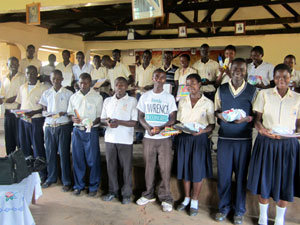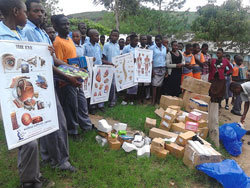

Quench and Connect works with Ugandan secondary schools to improve academic performance by providing essential teaching tools. After installing a borehole to ensure student health, the organization assesses each school’s needs—often including textbooks, lab equipment, and basic technology, which are largely absent in rural areas. By targeting schools with strong teachers and aligning with Uganda’s national curriculum, Quench and Connect helps students succeed. A grant-funded example in Gayaza enabled science labs, leading to top exam scores and a district science ranking of sixth out of 322 schools.